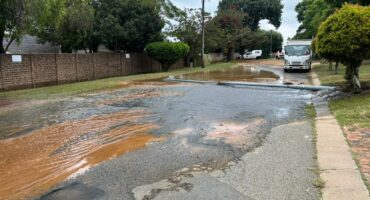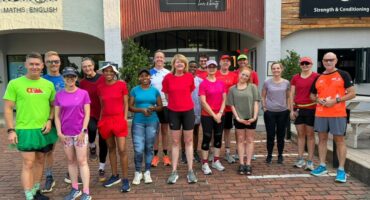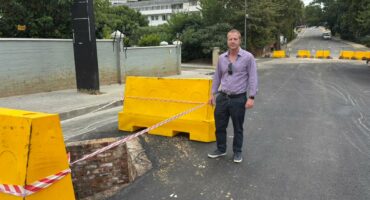
Johannesburg City Parks and Zoo announced they have been working tirelessly to investigate infections of the shot hole borer. Councillor Nonhlanhla Sifumba, MMC for Community Development for the City of Joburg said a task team had engaged with insect specialists including academics, entomologists, and arbour culturists to consult on this particular alien invasive beetle known as the polyphagous shot hole borer (PSHB).
She said it was named as such due to the effect it creates which is similar to that of a shotgun having been fired into a tree.
To date, almost a 100 tree species have been identified as being infected.
“The PSHB infestation is a national problem, and the current action plan is focused on gathering and analysing as much information as possible, as well as working in collaboration with the national Department of Agriculture, Forestry and Fisheries who are taking a lead in dealing with this issue as well as other organisations and private institutions,” she said.
“This includes continuously identifying trees that are infected and researching a sustainable solution to dealing with this problem.”
Sifumba said City Parks was liaising with the Cities4Forests Group, the World Resource Institute Forum dealing with urban forestry and related matters.
“A workshop is being planned with several international and UN-based organisations in a quest to develop a specific strategy for the city.”
Key implementable action plans include:
- Removal of dead trees.
- Ensuring data on what killed the trees is accurate – this is to ensure cases of PSHB are accurately recorded
- Proper disposal of these trees so that no further contamination happens
- Engagement with Pikitup on the volume of green waste that will be generated
- Education and engagement with communities in the month of September and October in areas where trees are being planted for Arbour month
- Risk profile compilation by the stakeholder unit of City Parks
- Development of capacity within the City to manage the phenomenon through academic research and skills insourcing.
Sifumba added City Parks had been approached by various stakeholders offering possible chemical solutions. “City Parks can only engage in discussing these solutions if the products are legally registered for this purpose.”
She said chemical control (injecting infested trees with fungicides and insecticides) may prove to be effective to control this tiny beetle and its fungus but may be expensive.
The City is requesting the reporting of suspected infected trees in Johannesburg to the WhatsApp number 064 756 2736 by sending the following:
Step 1: To send a WhatsApp Location Pin:
- Turn on phone location
- Open WhatsApp
- Select attach
- Select location
- Select send your current location
- Send photos.
Step 2: Take photos of suspected trees from several distances. Include photos of:
- The trunk or symptomatic branches
- The symptoms (close-up)
- The entry/exit hole, if visible, with a ballpoint pen for scale (remove gumming or exudate if necessary)
- If Fusarium (fungi) dieback is observed include a picture of the entire tree.
Do you think the City is doing enough to curb the infestation? Share your views with us on the Sandton Chronicle Facebook page




